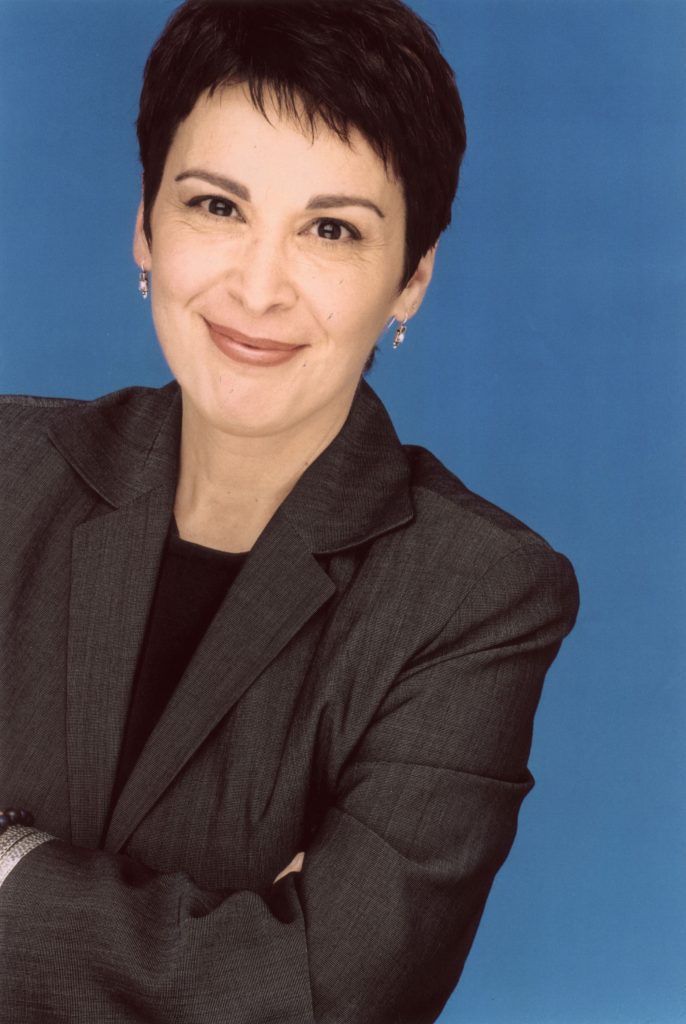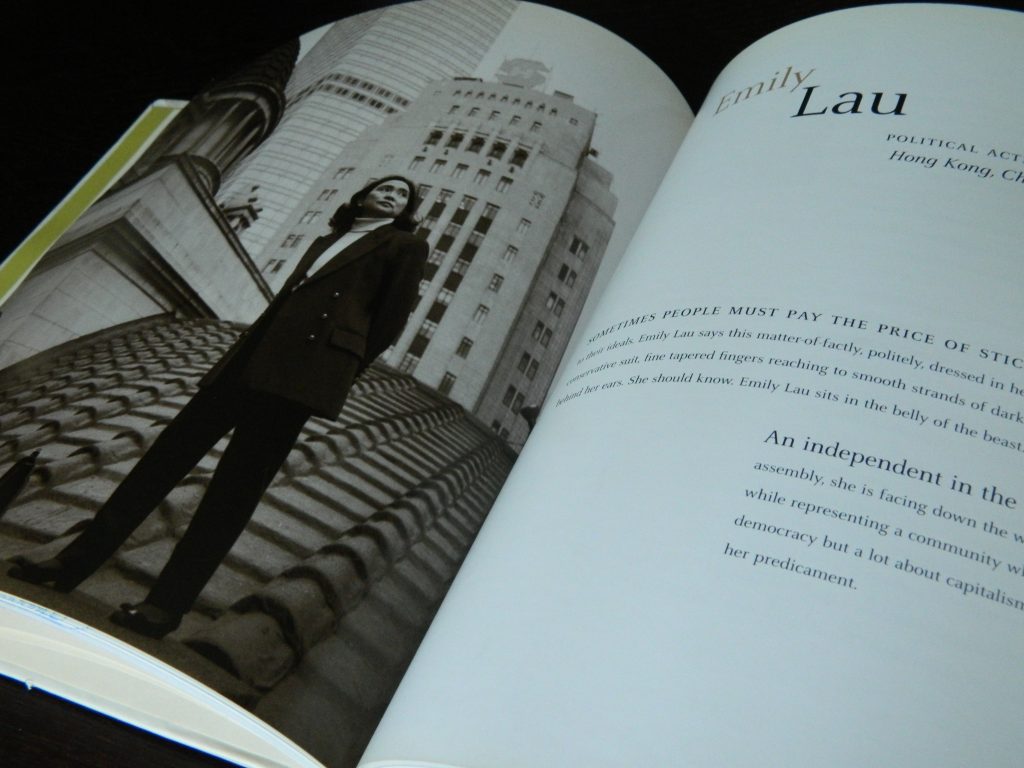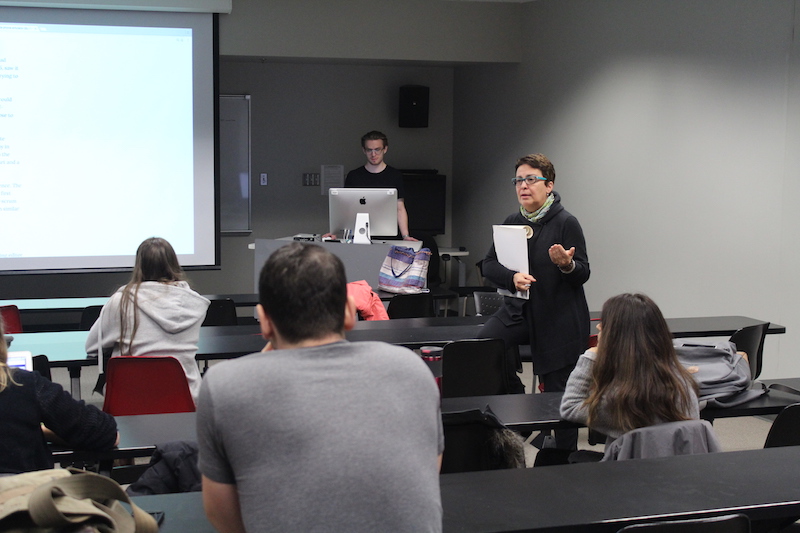A part-time journalism professor with a full-time commitment to crafting journalists
With nothing but her bachelor’s degree in Canadian history and a few years of copy editing experience at Reader’s Digest, Concordia part-time professor Donna Nebenzahl pushed her way into the journalism world like the big bad wolf.

“I huffed and I puffed and I refused to [give up],” she said. Editors didn’t want to talk to her—they claimed she knew nothing about newspapers. “But I just kept trying and trying and finally I got a job at The Montreal Star.”
Although the newspaper was only months away from folding, it was in that newsroom, on the streets of the Old Port, that Nebenzahl found her place.
“In that newsroom, I felt like ‘Oh my god, here I am, this is where I want to be,’” she recalled. “Everything about it, the pace of it—I loved it, I just really loved it.”
Nebenzahl eventually wound up in the newsroom of The Montreal Star’s old competitor: The Montreal Gazette. She spearheaded the newspaper’s Trends magazine, launched the award-winning Woman News section and worked as an editor for various lifestyle and feature sections.
Yet, as newspapers corporatized, the bottom line was the big bad wolf that huffed and puffed and swept Nebenzahl away in one of The Montreal Gazette’s rounds of buyouts. Six years ago, she joined the many journalists squeezed out of ever-shrinking newsrooms.
Since leaving her full-time job, Nebenzahl said she’s become much more invested in her teaching career. When you have a lot of experience in the field, it’s important to give back, she said. Leaving the newsroom is just one more experience she brings to the table for her students to learn from.
“It became about the shareholder, and the shareholder is really not the reason you should be doing journalism,” she said. “You should be doing journalism because you believe that these stories need to be told, that people need to investigate and understand, that the public has the right to know.”
She said many of her students have caught the journalism bug, and she wants to keep them focused on the value of their work, rather than on how to please their future bosses. She said it’s one of the main reasons she teaches.
“I think that, seeing the challenges in journalism today, it’s important to try to convey this notion of what this business is really about,” Nebenzahl said. “I mean certainly, if I had my way, there would be no media company that is owned for profit.”
Outside of Concordia, Nebenzahl has been developing a series of writing workshops called “Digging.” Her inspiration came from a poem by Nobel Prize-winner Seamus Heaney in which he compares his ancestors’ digging of the land to the digging he does with his pen.
“All the writing exercises are designed to unearth things, to dig up memories or relationships or interactions or inspirations,” Nebenzahl explained. “I think it’s worth it for everybody to find those things. You put them aside, you stick them in a corner in your memory, and this allows you a chance to really look at them. It gives you a sense of understanding about yourself.”
Nebenzahl said she’s enthralled with the idea of “writing your life,” and even with her graduate students last semester, she spent a lot of time exploring their writing skills.
“There are things that you do occasionally where you forget the time, you lose track of time because you’re so immersed in it—well that’s what writing is like for me,” she said.
Stepping out of the newsroom has been liberating for Nebenzahl in a sense, as she said it has allowed her to focus on writing and, as a freelancer, she has more freedom to explore topics that interest her.
“You work at a newspaper for many years before you’re able to make choices about what you want to write. You’re usually told what to do,” she said. When she began working as an editor for The Montreal Gazette, her job involved managing her section—only 15 years later was she able to start writing again, as a columnist for the Woman News section she’d helped create. “As a freelancer, choosing makes life very interesting because it’s much more about what moves you or what you feel passionate about.”
One topic Nebenzahl has been particularly passionate about in the last few years is micro-farming. She has written several articles for The Montreal Gazette about small farming and urban agriculture in Quebec, and the new generation of young farmers leading the movement.
Traditionally, students who studied agriculture at McGill’s Macdonald campus were the sons and daughters of farmers, taking on the family business, Nebenzahl explained. Now, however, many of the students coming out of McGill’s agriculture program are new to farming but are pursuing it because they are passionate about it.
“They’re very well educated, they’re pretty hip, they create networks, they really talk to each other a lot and they’re doing farming in a very interesting way,” she said.
The idea behind micro-farming, Nebenzahl explained, is that farmers use very small acreage and sophisticated hand-held tools rather than try to mass produce on huge fields with tractors. In addition to local markets, many of these organic farmers connect with their customers through Community Supported Agriculture (CSA) networks.
“They’re not like the back-to-the-land hippies of my era who didn’t know anything,” she said. “I’m very hopeful that this is a real movement, a movement that’s going to have a lasting effect… To me, this is the future of food.”
It is a subject Nebenzahl said she would love to explore as a documentary. While she hasn’t created a documentary since her 2009 Twice Upon A Garden, which looked at the history of the Reford Gardens in Grand-Métis, Nebenzahl believes the medium would give people a sense of the hard work and value of these farming practices.
Nebenzahl is part of a CSA herself, and spent part of last spring and summer volunteering once a week on an organic farm.
“I’m sitting there in these plastic ‘tunnels’ and there’s all this straw on the ground and you’re planting little basil plants in between the tomatoes and, as you’re doing it all by hand, you realize in the end… this is going to grow into these awesome things and you’re going to be able to harvest it all,” she said. “It’s just beautiful… To me, there’s no downside here, if we can only believe in the importance of good farmland and supporting farmers.”
Getting close to the action when it comes to social movements is not new for Nebenzahl. In 2003, she and photojournalist Nance Ackerman published Womankind: Faces of Change Around the World. The book was the result of months of travelling to dozens of countries across five continents, capturing the stories of activist women, both in writing and in photographs.
“The theme was that women really are the face of activism around the world,” Nebenzahl said. “They are the people who are there on the ground, they see what happens to children, they see what happens to the environment.”

Womankind features the Grandmothers of the Plaza de Mayo, fighting to bring back the grandchildren who were stolen from them during a government crackdown in Argentina. It sheds light on women in Kenya fighting to give their daughters an education. It showcases mothers in Moscow, working to get supplies to their sons, who were sent to fight in Chechnya without proper clothing or food.
Despite the tragedies experienced by many of these women, Nebenzahl said there was something very inspiring and hopeful about these women.
“When they woke up in the morning, they had a task. They were not sad, morose, unhappy people—they were very active people who really believed that what they were doing meant something,” she said.
While Nebenzahl spends less time out in the field and more time in the classroom than she used to, she believes this “boots-on-the-ground” experience is what makes Concordia’s part-time faculty so valuable.
“A lot of people are doing a lot of very original work,” she said, both in journalism and other fields. “This is what makes part-time faculty interesting in this department, because you need a lot of people who are in the field now.”
Nebenzahl said she is involved with a few of the Concordia University Part-Time Faculty Association committees because she wants to give the part-time faculty a stronger voice within the university. It’s an issue of inclusion, she said, and recognizing that these professors are an important part of the process. It’s a philosophy Nebenzahl said should come naturally to Concordia, as it is part of the university’s roots.
“It’s interesting to me because Concordia is kind of a university of the streets. It originated in downtown Montreal where people who couldn’t afford to go to McGill or couldn’t afford to go to school during the day started going to school at night,” she said. “It really developed out of that kind of idea of giving opportunities to people who were doing other things.”




